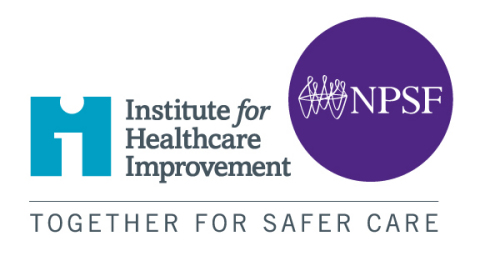CAMBRIDGE, Mass.--(BUSINESS WIRE)--The vast majority of Americans are having positive experiences with the health care system, but 21 percent of adults report having personally experienced a medical error, according to a new national survey released today by the IHI/NPSF Lucian Leape Institute and NORC at the University of Chicago. The survey further finds that, when errors do occur, they often have lasting impact on the patient’s physical health, emotional health, financial well-being, or family relationships.
The nationwide survey of more than 2,500 adults was conducted by NORC from May 12-June 26, 2017. The survey expands on a 1997 survey conducted by the National Patient Safety Foundation (NPSF), which merged with the Institute for Healthcare Improvement (IHI) earlier this year.
Beyond personally experiencing errors, 31 percent of Americans report that someone else whose care they were closely involved with experienced an error. The new survey finds that ambulatory settings are a frequent site of medical errors, and that errors related to diagnosis and patient-provider communications are the most commonly reported.
Among the survey’s other notable findings:
- Nearly half of those who perceived that an error had occurred brought it to the attention of medical personnel or other staff at the health care facility.
- Most respondents believe that, while health care providers are chiefly responsible for patient safety, patients and their families also have a role to play.
- When asked what caused the medical error they experienced, people identified, on average, at least seven different factors.
“The survey results show that Americans recognize that patient safety is a critically important, but complex, issue,” says Tejal K. Gandhi, MD, MPH, CPPS, Chief Clinical and Safety Officer, IHI, and President of the IHI/NPSF Lucian Leape Institute. “The focus on diagnostic errors and the outpatient settings closely parallels other research in this area and confirms that health care improvers need to take a systems approach to safety that encompasses all settings of care, not just hospitals.”
Few Americans worry about patient safety personally. More than 8 in 10 believe that patient safety is the responsibility of health care providers, hospital leaders and administrators, as well as family members and patients.
“Studies have looked at the physical and financial hardships associated with medical errors. This new survey is notable for highlighting how medical harm impacts emotional health and family relationships,” says Linda K. Kenney, President, Medically Induced Trauma Support Services, and a prominent patient advocate. “I think one of the most valuable findings is the degree to which patients are willing, and expect, to be involved in their care. The fact that many people who experienced an error spoke up about it confirms that patients and families are vital to informing health care organizations about harm and how to prevent it in the future.”
The survey will be among the topics on the agenda at the 10th Annual IHI/NPSF Lucian Leape Institute Forum & Keynote Dinner taking place today in Newton, Massachusetts.
The survey was conducted with support from Medtronic, inaugural funder of the IHI/NPSF Lucian Leape Institute. The study design, analysis, and report are solely the responsibility of the authors and were in no way influenced or shaped by Medtronic.
About the Survey
The survey featured a nationally representative sample of 2,536 adults using the AmeriSpeak Panel, the probability-based panel of NORC at the University of Chicago. The sample also included an oversample of low socioeconomic status adults with less than a high school education and a household income of less than $50,000 a year (n=524). Interviews were completed online and using landlines and cell phones from May 12 to June 26, 2017. Results have a margin of sampling error of +/- 3.2 percentage points. More information about the survey and reports can be found at: http://www.ihi.org/about/news/Pages/New-Survey-Looks-at-Patient-Experiences-With-MedicalError.aspx
About IHI/NPSF
The Institute for Healthcare Improvement (IHI) and the National Patient Safety Foundation (NPSF) began working together as one organization in May 2017. The newly formed entity is committed to using its combined knowledge and resources to focus and energize the patient safety agenda in order to build systems of safety across the continuum of care. Visit ihi.org/patientsafety.
About NORC at the University of Chicago
NORC at the University of Chicago is an objective and non-partisan research institution that delivers reliable data and rigorous analysis to guide critical programmatic, business, and policy decisions. Since 1941, NORC has conducted groundbreaking studies, created and applied innovative methods and tools, and advanced principles of scientific integrity and collaboration. Today, government, corporate, and nonprofit clients around the world partner with NORC to transform increasingly complex information into useful knowledge.




